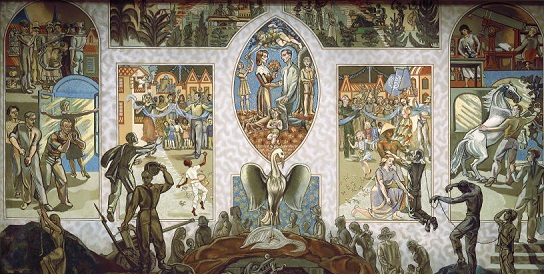The world lost an intellectual giant this year when Morton Deutsch—an eminent psychologist, Columbia University professor, mentor extraordinaire, and one of the founders of the field of conflict resolution—passed away in March at the age of 97. Throughout his long and illustrious career, Deutsch remained committed to promoting a more just, peaceful and sustainable world. In honor of his life and legacy, our Director Peter T. Coleman has selected a series of ten of Deutsch’s most significant scientific to highlight in a series of weekly blog posts, running on Psychology Today and Huffington Post.
The first of these weekly posts was published on Thursday, August 10, and a new blog will be posted each week through Thursday, October 12. Below you can find the link to this week’s blog—you can also check back here for links on future blogs, and remember to follow us on social media for more of our updates!
Finally to read more about Deutsch’s life and work, please visit: http://icccr.tc.columbia.edu/founder-morton-deutsch/
In the mid 1940s, a young Mort Deutsch returned home from World War II a decorated war hero, having navigated over 30 bombing missions over Nazi Germany. Although he considered WWII a just war, he was shocked and disturbed by the devastating impact of the nuclear warheads Americans dropped over civilian populations in Japan. In response, Deutsch joined the noted social psychologist Kurt Lewin’s Research Center for Group Dynamics at MIT as a doctoral student, and soon undertook the development of a highly consequential theory of cooperative and competitive processes in groups. The UN Security Council was just forming at the time, so Deutsch focused his research on identifying the basic conditions that would lead the member states to work with each other to protect the planet from future war and nuclear annihilation, versus those that would lead the nations to work against each other to compete for power and resources, culminating in war.
In order to understand the essence of what moved humans with or against others, Deutsch employed a simple thought experiment. He imagined two feral beings meeting for the first time – two wild, unsocialized creatures with no history of contact and no expectations for their interaction, encountering the likes of the other in a forest. The questions was, what, fundamentally, would move these beings toward, against or away from the other? His answer was: how they saw their fates – their interdependence – linked. Read the full article here at Psychology Today—World Peace: How to Keep Nations from Engaging in Global Thermonuclear Warfare and Destroying the Planet?
